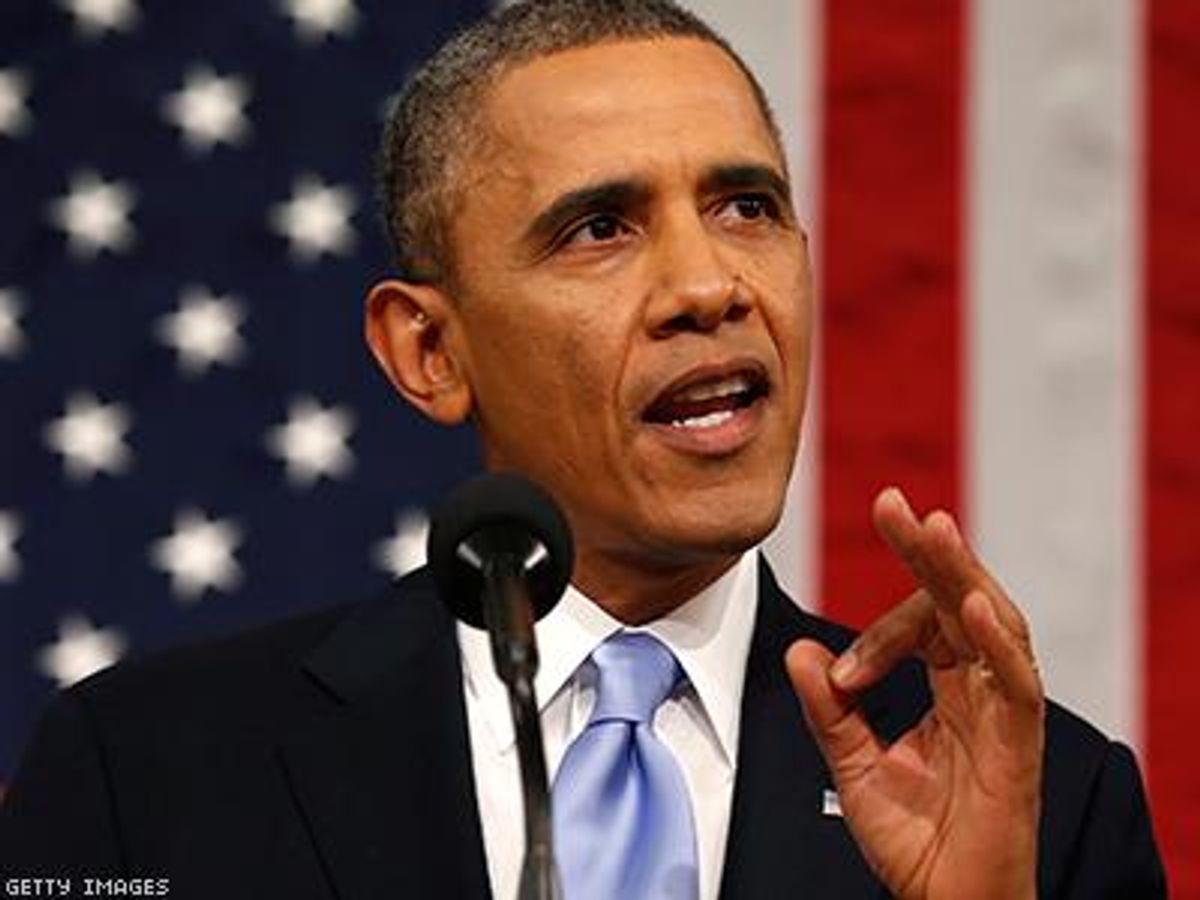It's been almost four years since President Barack Obama told The Advocate his views on marriage equality were "constantly evolving." Two years after that, the president said he personally supported same-sex marriage but that as a matter of law, it should be left to each state to decide.
Now the president's views have evolved so completely that the commander in chief believes the U.S. Constitution guarantees the freedom to marry nationwide, according to an interview published Monday by The New Yorker.
"Ultimately, I think the Equal Protection Clause [of the U.S. Constitution] does guarantee same-sex marriage in all 50 states," Obama told The New Yorker. "But, as you know, courts have always been strategic. There have been times where the stars were aligned and the Court, like a thunderbolt, issues a ruling like Brown v. Board of Education, but that's pretty rare. And, given the direction of society, for the Court to have allowed the process to play out the way it has may make the shift less controversial and more lasting."
Before he was elected, Obama taught classes and was a senior lecturer at the University of Chicago's Law School for more than a decade.
The Equal Protection Clause of the 14th Amendment to the U.S. Constitution has been repeatedly cited by judges in the vast majority of the 46 pro-equality rulings that have come from state and federal courts since the Supreme Court struck down the so-called Defense of Marriage Act in June 2013.
So what does the self-described constitutional law professor think is the biggest decision to come out of the Supreme Court during his time at the White House? The answer might be surprising, since the President actually points to a nondecision in response to that query.
"In some ways, the decision that was just handed down to not do anything about what states are doing on same-sex marriage may end up being as consequential -- from my perspective, a positive sense -- as anything that's been done," the president said, referring to this month's Supreme Court decision to let stand lower court rulings in favor of marriage equality in five states. "Because I think it really signals that although the Court was not quite ready -- it didn't have sufficient votes to follow Loving v. Virginia and go ahead and indicate an equal-protection right across the board -- it was a consequential and powerful signal of the changes that have taken place in society and that the law is having to catch up."
Supreme Court Justice Ruth Bader Ginsburg echoed a similar sentiment in an conversation with NPR's Nina Totenberg this weekend, when the reliably progressive justice said she sees "no crying need" for the Supreme Court to take up a marriage equality case immediately, as federal appeals courts have so far been unanimous in ruling for the freedom to marry.
At press time, 31 states and the District of Columbia allow same-sex couples to marry. Wyoming will become the 32nd state with marriage equality when a federal court ruling takes effect there on Tuesday.



















































































Viral post saying Republicans 'have two daddies now' has MAGA hot and bothered